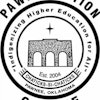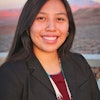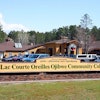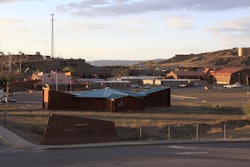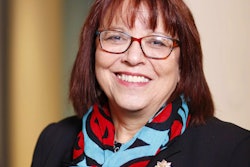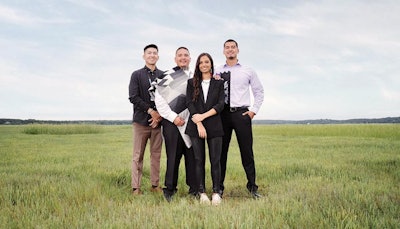 The American Indian College Fund supports Native American and Alaska Native scholars, including (left to right): Chance Begay, Navajo; Jerald Red Buffalo, Sisseton Wahpeton Oyate; Samantha Maltais, Wampanoag of Aquinnah; and Trey Blackhawk, Winnebago of NebraskaAmerican Indian College Fund
The American Indian College Fund supports Native American and Alaska Native scholars, including (left to right): Chance Begay, Navajo; Jerald Red Buffalo, Sisseton Wahpeton Oyate; Samantha Maltais, Wampanoag of Aquinnah; and Trey Blackhawk, Winnebago of NebraskaAmerican Indian College Fund
The multi-day event, called the Summer of Success Virtual Conference, brought educators, employers, and students together to share resources. Sessions covered a range of topics, from navigating college as a first-generation student to making sense of financial aid—all centered on Native students.
“We recognize that so many institutions, particularly institutions of higher education outside of tribal colleges, were never designed for us,” said speaker Verónica Hirsch, member of the Chiricahua Apache tribe and founder of Colibrí Connections, a consulting company focused on career coaching in Indian Country. “That is why we appreciate opportunities like this conference as a means to connect with each other, uplift each other, and help each other realize our individual passions with community impact in mind.”
The American Indian College Fund is a nonprofit that helps Native students in higher education. In 2020-21, the nonprofit provided $15.5 million in scholarships and other direct student aid to American Indian students. The College Fund also supports various programs at the country’s 35 accredited tribal colleges and universities.
“Bridging our traditional cultures with our educational journeys has been imperative for me,” said conference speaker Jerald Red Buffalo, a College Fund student ambassador and member of the Sisseton Wahpeton Oyate tribe. “We have two energies that comprise our life: our physical energy, which is our physical life, and our spiritual energy, which is our soul. We need to maintain a sense of balance between both to nourish ourselves.”
At one session during the conference, two tribal college alumnae spoke about their career paths and how they found their passions. Panelist Sina Bear Eagle, member of the Oglala Lakota tribe, went to Oglala Lakota College for her associate’s degree, then got her bachelor’s at Fort Lewis College and master’s at the University of California, Los Angeles. Bear Eagle works as a park ranger, where she educates the public about the long-overlooked histories of Native tribes at national parks.
“I realized that I was the happiest I had ever been when I got to teach visitors or school groups about our history,” said Bear Eagle, referring to her first park ranger job at Wind Cave National Park, where she gave tours about the site's role in the Lakota emergence story. “That felt so important to me.”
Another panelist, Melinda Adams, shared her journey of becoming a doctoral candidate in the Department of Native American Studies at the University of California, Davis (UC Davis). She went to Haskell Indian Nations University, a tribal university, and is a member of the San Carlos Apache tribe. Adams got her master’s degree in ecology and environmental science at Purdue University prior to attending UC Davis.
“One of the reasons I am on this PhD journey is I did not see myself in STEM disciplines when I studied environmental science, and I did not see many Native women in the academy,” said Adams. “My dream with my work is to join environmental studies with Native American studies, particularly reclaiming our cultural and spiritual uses of fire.”
Adams noted that transitioning from studying at a tribal university to a predominantly white institution was difficult. Graduate school at Purdue, she said, “wasn’t just hard academically, but hard in my spirit and cultural groundedness.” Yet meeting other Native students on campus helped Adams along the way.
“My tips for Native students include form a support system: find your people,” said Adams. “And practice professionalism. Indian Country is so small, you might run into the same people over and over, so put your best self forward. Also, practice generosity. The best leaders among our people have been defined by what they gave away, not what they took. Operate from a place of abundance, not scarcity.”
Another session similarly stressed the importance of community. Panelists Julio Barron and Dr. Terence Gipson, who are both first-generation college students, talked about how they navigated higher education with the help of others.
“There is nothing in life more important than the relationships we build with people,” said Gipson, now an assistant professor of public health at St. John Fisher College. “I would not be here today if not for the connections I made.”
Barron, a College Success Coach at the College Fund, agreed. He offered encouragement to fellow first-generation students who may struggle with imposter syndrome, as he once did.
“The one piece of advice I would give my younger self is don’t doubt yourself,” said Barron. “Have confidence in yourself to be successful in whatever form that means for you.”
Rebecca Kelliher can be reached at [email protected]


